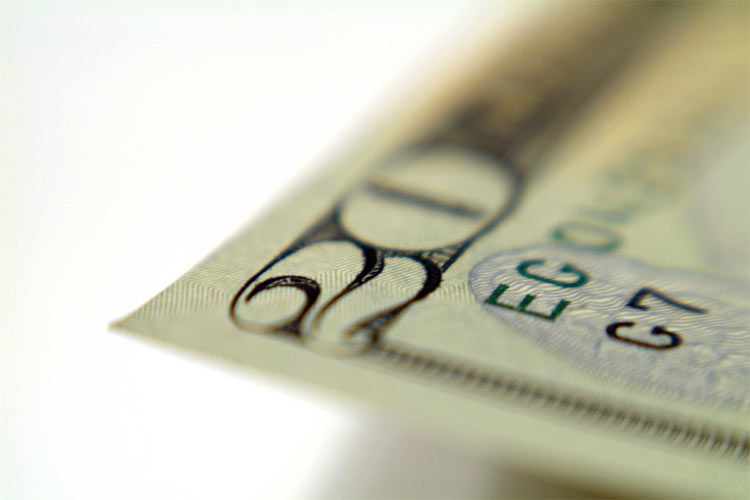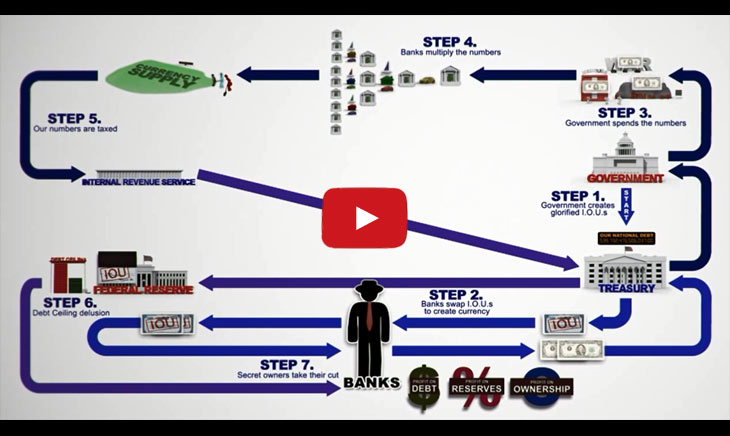The Future Global Reserve Currency: US Dollar or Chinese Yuan?
There’s a lot of issues to consider when attempting to determine the current state of the USD, and the entire fiat system that backs it and other currencies. Six years after the collapse of the US banking industry, we’re still printing money like it has no consequence, raising inflation levels into frightening territory just like it was before the last collapse.
There are few outcomes that can result from vigorously printing money in order to feed a teetering economy; none of them are good.
Is the USD still the dollar of choice? Yes.
Can we just keep printing empty money, which the entire planet knows has no collateral to back it? Probably not.
I say “probably” because this whole mess has gone on so long (since the early 80’s at least) who really knows?
Bernanke says we’re A-OK
Bernanke and his “going off the bridge” speech did little to add credibility to the states and the credibility of our Federal Reserve. If we’re printing money that everyone knows has nothing to back it, and he’s the Chairman of the Fed Reserve, how can we take anything he says seriously?
He tells us that the Feds are doing anything and everything to fight inflation, and that his successor, Janet Yellen, will have all the tools both she and her team will need to handle it, if the economy does boom too quickly again, but how can we be sure?
They bought up printed hoards of money to buy up Treasury Bonds during the last crisis in order to push down interest rates down, but as we all know, such a move leads inevitably to inflation, if history has anything to tell us.
Current positives for the USD’s value
The consumer-price-index for last month (Dec 2013) was recently released, and it’s somewhat promising, showing that we’re sitting a full half-percent below the Fed target of 2%. Current December numbers show the US CPI still at a healthy but rising 1.5%. (see Wall Street Journal source article).
Thought the Fed insists they’re going to keep short term interest rates low. Unemployment numbers raised slightly, with only 74,000 new jobs created in December 2013. This has, for the moment, halted talk from naysayers who believe the ceiling will soon collapse again.
US Currency = Cheap Toilet Paper?
Well, there’s no discounting the fact that the fiat-backed US dollar is bankrupt and definitely corrupt too – Peter Schiff said that USD can even worth less than toilet paper. It is at this point in time, most definitely as worthless as toilet paper or monopoly money, with trillions in bad assets and debt behind it (source).
To make matters even worse, all our central banks seem poised to accomplish one single mission: asset inflation by way of printing worthless toilet paper and calling it a dollar!
Predictions are as contradictory as ever, with patriots and politicians defending our currency, and foreign central banks eager to diversify their holdings (source).
Perhaps it’s time we leave the faith-based fiat system and go back to precious metals?
If USD failed, will there be a new Global Reserve Currency?
The shift from USD as the world reserve currency to another allegedly stronger currency is underway. Which currency is the contender? Well, there has been much speculation as of late as to whether the Chinese Yuan is poised to take over the USD as the top global reserve currency.
The simple answer, based on current politics and investor preferences is no, I don’t think so.
Renminbi or Yuan?
First and foremost, for all of you out there who’re new to investing and find yourself scratching your head while researching this hot topic, wondering why some sources are talking about the “Chinese Renminbi” and others the “Chinese Yuan”, relax there’s a simple explanation.
They’re the same. Renminbi means “people’s currency” in Chinese, much as the official name for a US dollar is “legal US tender”. Yuan is loosely translated in English to mean “dollar”. The two are the same. Check out this article if you want to get more in-depth info on Chinese money terminology.

Chinese Yuan might not be ready to become the global reserve currency
China (still) have major restrictions on the way the Yuan is traded on the open market. Even the most current Shanghai Free-Trade Zone (STZ) pilot project implemented at the end of last year hasn’t spurned investor confidence in the Chinese’s currency.
Back in the eighties, the Chinese decided that they wanted to get rich. They decided to drop the value of their currency, then peg it at a set value (8.27 Yuan per 1 USD), where it remained at until 2005. As of 2005, they bowed to pressure from worldwide trading partners to institute a meagerly managed float of 1%, plus or minus 0.2% for the last decade (source).
The above is only one of the bigger issues. One could spend days analyzing all the problems with Chinese politics and their currency. Sure, the US is unpredictable, it’s always in danger of inflation. But they do play by international currency standards. The Chinese haven’t played by the same rules the rest of us have at the moment, and have a history of making rules of their own in spite of the global collective.
They can pull the rug out from the STZ anytime they choose, but the stalwart investor can still make a few bucks trading in their currency in the meantime…
Charles Sizemore, from Sizemore Capital Investments suggests the devaluation will happen slowly if/when it does (source):
“If the Chinese Communist Party wants to keep its grip on power, it has to keep its restive masses happy. And this means that any devaluation of the renminbi will be gradual, if it happens at all.
That means if you are going to invest in China, invest in companies that benefit from rising living standards among Chinese workers; go for consumer goods and services rather than industrial companies and exporters.”
Before you go, please watch this very interesting interview with South Africa’s top gold analyst, Julian Phillips:
Takeaway
So, what’s the significance of the information presented above? Why knowing the position of the US Dollar and Chinese Yuan matter? Politically-aside, the answer is this: It determines how you secure your hard earned money.
Furthermore, the future of US Dollar – and the possibility of wealth transfer to the East if Chinese Yuan did become the global reserve currency – will also determine the future of your financial well-being.
Indeed, we know that the economy impacts us greatly. The economy determines what goes up and what goes down – and knowing the ups and downs – and when they happen – is uber-important.
It will govern your decisions – e.g. If I am doing real estate investing, when should I buy/sell properties; if I’m investing in precious metals, when should I buy/sell precious metals; if I am doing forex trading, when should I buy/sell my currencies? Should I exchange my USD? Should I keep it? Perhaps another issue as important as what to invest: Where should I invest and/or secure my wealth?
The experts can say whatever they like, but the decision is still in your hand. What are YOU going to do with your assets?
Photo credit: lincolnblues, dcmaster


